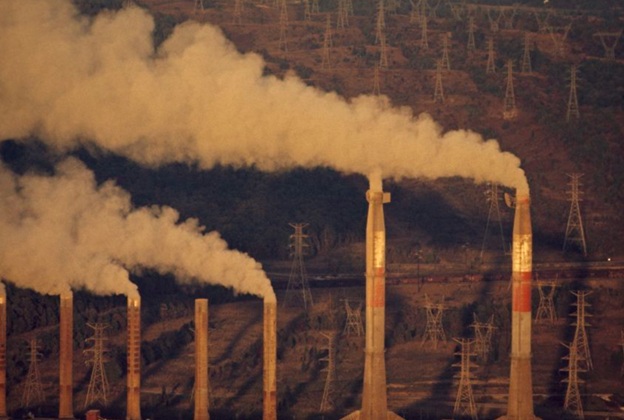GLOBAL WARMING
Global warming refers to the increase in the average global temperature over the past several decades. Natural processes have always affected the Earth's temperature and climate, but recently, the Earth's temperature and climate have been changing at a rate faster than nature alone can explain. This rapid change is due to human activities and the widespread use of fossil fuels for energy.
Fossil fuels include coal, oil, and natural gas. The burning of fossil fuels creates what is known as the "greenhouse effect" in the Earth's atmosphere. The greenhouse effect occurs when the Sun's rays pass through the atmosphere and are reflected back to the Earth's surface. Certain gases in the atmosphere trap heat above the Earth. The gases released from burning fossil fuels are good at trapping heat and preventing it from escaping the atmosphere. These greenhouse gases include carbon dioxide, methane, nitrous oxide, chlorofluorocarbons, and water vapor. The excess heat in the atmosphere causes the Earth's average temperature to rise over time, known as global warming.
The Industrial Revolution, which began in the mid-18th century, led to the beginning of a rise in greenhouse gas emissions from Europe and the United States due to human activities. The invention of the coal-fired steam engine Coal became the primary energy source. Soon, coal was used to heat homes and fuel machinery in factories.
Since then, the burning of fossil fuels has continued to increase. Today, many countries around the world use fossil fuels to generate electricity, heat and transport. Greenhouse gas emissions have skyrocketed over the past 100 years, especially since the 1980s, resulting in rapid global temperature rises.
Global warming has also brought another problem to mankind: climate change. People often use the terms “global warming” and “climate change” interchangeably, but the two terms are different. Global warming refers to a rise in the average global temperature, while climate change refers to changes in weather patterns and growing seasons across the world. Global warming is causing climate change, which poses a serious threat to life on Earth.
Humans are facing the effects of global warming all over the world, as climate change is causing severe droughts, wildfires and heavy rain storms. Rising temperatures are changing ecosystems, forcing animals to migrate to cooler climates to survive. Scientists predict that if nothing is done to slow global temperatures, many species could become extinct.
The oceans are also warming. Glaciers, polar ice caps and ice sheets are melting, causing sea levels to rise. It has caused widespread flooding for many people living on islands and coastal communities. Coral reefs are a symbol of the effects of warming oceans. Many reefs, home to thousands of species of fish and other life, are dying. National Geographic Explorer Shireen Rahimi is an underwater storyteller focused on the impacts of global warming on tropical coral reefs. Her photos document the human relationship with changing seas in the South Pacific, the Coral Triangle and the Caribbean. Rahimi is dedicated to telling personal stories that promote environmental action.
Countries around the world are working to reduce greenhouse gas emissions to slow global warming. In 2015, nearly 200 countries signed the Paris Agreement at the United Nations Climate Change Conference. This international treaty commits each country to reducing greenhouse gas emissions with the goal of slowing global warming and preventing a 2°C (3.6°F) rise in global temperatures above pre-industrial levels.
Reference : National Geographic
